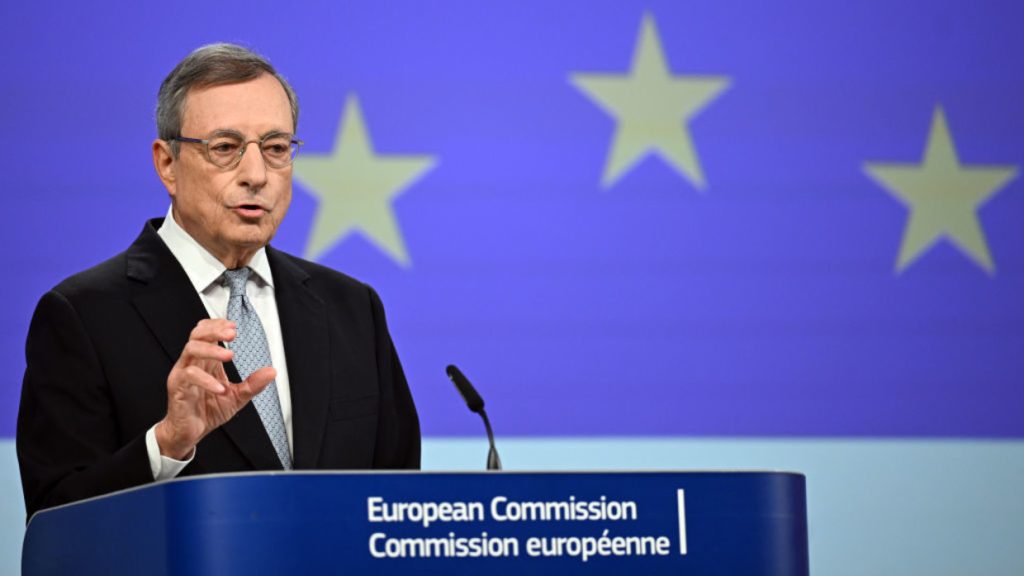EU’s Future at Risk Without Major Investment and Reforms, Report Warns
3 min read

The European Union is facing a critical crossroads, according to a stark new report commissioned by the European Commission. The comprehensive review, led by former European Central Bank President Mario Draghi, warns that the EU must significantly ramp up investment and reform its industrial policy to avoid an “existential challenge.”
The report, which has been eagerly anticipated and was finally released after several months of delays, suggests that the EU needs to increase its annual spending by €800 billion (£675 billion) to remain competitive with the US and China. This figure represents a dramatic leap from current spending levels and is more than double the scale of the post-World War Two Marshall Plan.
European leaders have been cautioned that without these drastic changes, they will be forced to make difficult choices between advancing climate goals, economic growth, and foreign policy objectives. The report emphasizes that productivity, or the efficiency with which goods and services are produced, is a significant area of concern. It criticizes the EU for sluggish growth and slower improvements in living standards compared to other regions.
The review underscores Europe’s struggle with innovation, pointing out that the continent has not kept pace with the digital revolution that has seen the emergence of major tech giants in the US. According to Draghi, Europe has missed out on the internet-driven boom and remains “stuck” in a stagnant industrial structure, leading to fewer new companies and a tendency for innovative firms to relocate abroad for better funding and less regulation.
The report also highlights the growing threat from state-sponsored Chinese enterprises as the EU attempts to establish itself in emerging sectors like electric vehicles and green technology. To address these challenges, the report outlines 170 proposals aimed at cutting regulations, improving decision-making, and enhancing cooperation between national governments—an area historically fraught with difficulties.
Draghi, who was re-elected as Commission President Ursula von der Leyen’s top advisor on this project, spoke in Brussels following the report’s release. He emphasized the urgency of the situation, stating, “For the first time since the Cold War, we must genuinely fear for our self-preservation, and the need for a unified response has never been so compelling.”
The report’s recommendations are described as “unprecedented,” suggesting a significant expansion of joint borrowing among EU member states to finance the proposed investments. However, this idea is likely to be contentious, with some member states potentially opposing such measures due to concerns about fiscal responsibility and sovereignty.
Lorenzo Codogno, a visiting professor at the London School of Economics and former head of the Italian treasury, described the report as “provocative and bold.” He warned that gaining the necessary political support to implement these sweeping recommendations would be “extremely challenging.”
Criticism of the report has already surfaced. German Finance Minister Christian Lindner expressed skepticism about the effectiveness of EU joint borrowing, arguing that the real issue lies in bureaucratic inefficiencies and a planned economy rather than a lack of subsidies. This criticism reflects the broader debate within the EU about how best to address its economic and structural challenges.
The release of this report comes at a crucial time as the new European Commission is about to be confirmed. With von der Leyen beginning her second term, the pressure is on to address these pressing issues and implement reforms that could shape the future trajectory of the EU. As European leaders consider the findings and recommendations, the need for decisive action has never been more apparent.